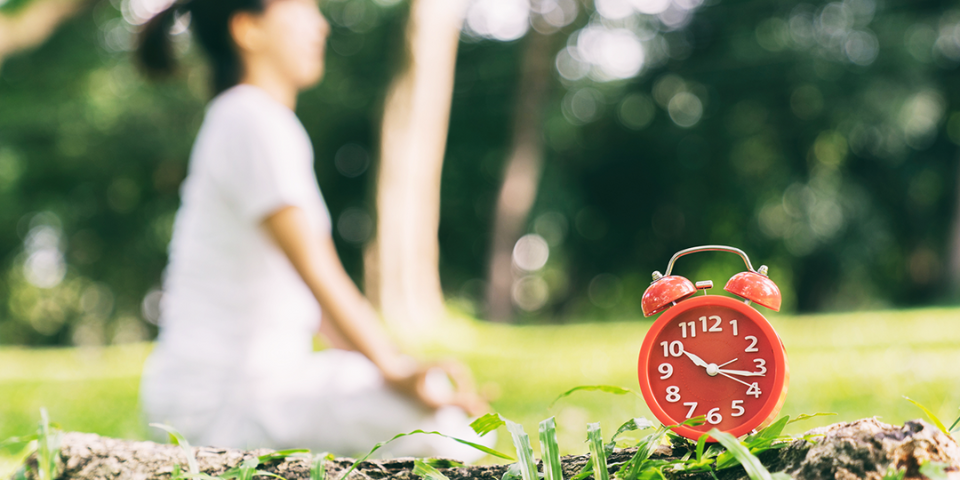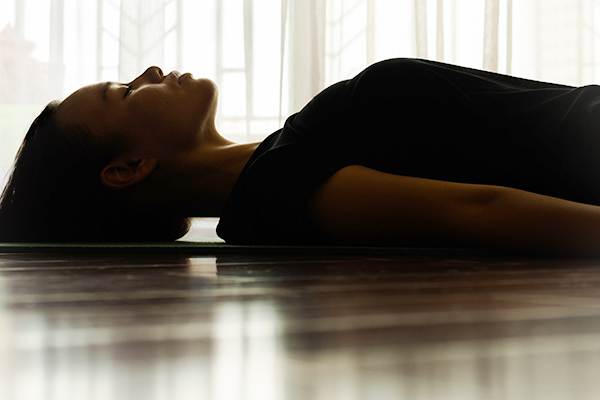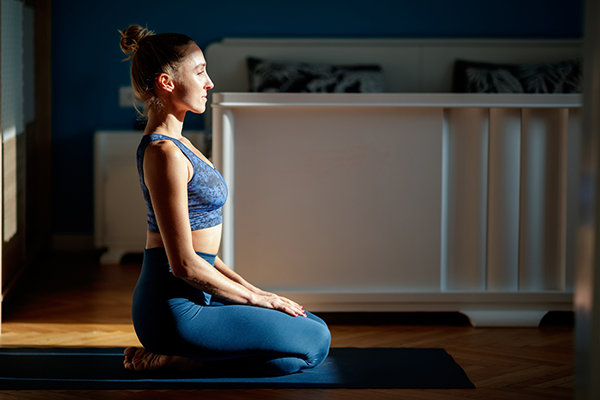Meditation can feel, well, a lot like doing nothing if you’re new to the practice. Newcomers can feel frustrated or like they’re “failing.” (By the way, it’s impossible to fail at using meditation to combat stress unless you don’t do it at all.) But the benefits of meditation are big for those who consistently show up.
So, how much meditation is necessary in order to reap those rewards? It’s not as simple as a single number, says meditation and yoga teacher Paige Allia, RYT 500. But there are some general suggestions that can help you build a fulfilling meditation practice.
How Long Should Beginners Meditate?
There’s no wrong answer here. “Simple answer, five to 15 minutes is a common amount of time to set as a goal,” says Adam Weinberg, a meditation teacher and founder of Relax with Adam. “If your practice includes counting breaths or setting a timer, then 12 breaths is a nice two-minute check-in, 36 breaths takes around five minutes, and 108 breaths is a good 15-minute practice.”
But it may take some time to find the right meditation length for you.
What Happens When You Meditate Longer?
When you meditate, it impacts your brain waves, shifting you from the beta waves of daily work and multitasking to alpha, theta, delta, and gamma waves that help you hone your focus.
Physiologically, the goal is to get your body out of “multi-focus mode of beta,” Weinberg explains. You’re switching into the parasympathetic state, or “rest and digest” state, in which you feel more relaxed, your heart rate slows, and (an easy thing to watch out for) you produce more saliva.
Each of these brain waves marks a deeper state of relaxation that takes longer to achieve — but spending time in any of them is an improvement over beta mode.
Don’t Worry About Setting Goals
Don’t get hung up on the clock. “Five minutes can feel so long, especially as we begin but also depending on the day and how we might be feeling in our own bodies and spaces,” explains Allia, who is certified in trauma-informed yoga. “So maybe we simply pause when we notice our minds spinning, we take softer and smoother breaths, and then when we feel ready, we meet the day again.”
Overall, she urges you to “consider your reality” when setting goals. If you’re a parent juggling kids studying at home, paying the bills, and your own job, “maybe your meditation practice looks like a moment as you are buckling your seatbelt in your vehicle and you consciously breathe, say an affirmation, come home to yourself.”
BODi Sound Meditation is perfect for our busy, stress-filled world. Some of the sessions are as short as 10 minutes.
How Long Should Regulars Meditate?
Maybe you’re no newcomer to meditation, but you’re still looking for answers here. In that case, both Allia and Weinberg agree that it’s about what you need as an individual. That might not mean meditating more than 15 minutes a day.
There are other ways to further your practice. Weinberg offers himself as an example: Sometimes he’ll focus on getting a personal best, such as three months of consistency, meditating every day.
Stay open to what works best for you. Allia underscores that meditation practice is more about quality than quantity, adding that “the time often grows as the quality does.” Leave room for your meditation to evolve depending on what you need and know there are plenty of resources available to fit your changing goals.


